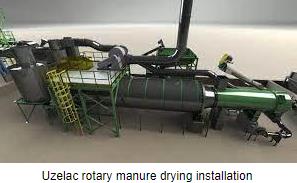 The Iowa Department of Natural Resources requires adherence to regulations governing disposal of animal waste from Concentrated Animal Feeding Operations (CAFOs). Approved plans are based on the need for soil nutrients and the possibility of runoff given the capacity of designated fields. Iowa operates a Nutrient Reduction Strategy that presumes pre-approval of plans to dispose of waste by soil application.
The Iowa Department of Natural Resources requires adherence to regulations governing disposal of animal waste from Concentrated Animal Feeding Operations (CAFOs). Approved plans are based on the need for soil nutrients and the possibility of runoff given the capacity of designated fields. Iowa operates a Nutrient Reduction Strategy that presumes pre-approval of plans to dispose of waste by soil application.
 Given problems relating to compliance and implementation, situations have arisen such as the Supreme Beef situation in April 2023 in which conflicts arose between the Department of Natural Resources and operators of a CAFO.
Given problems relating to compliance and implementation, situations have arisen such as the Supreme Beef situation in April 2023 in which conflicts arose between the Department of Natural Resources and operators of a CAFO.
Proposed Senate Bill 3152 would effectively “water down” current procedures relating to the assessment of suitability of agricultural land to receive waste and to allow CAFOs to operate under plans that have been rejected, pending an appeal. Given considerable opposition, the Bill intended to “water down” regulation of waste will have to be amended and will then be referred to the Senate for consideration.
It is noted that Iowa with 40 million hens representing 14 percent of the nation's total produces considerable quantities of manure over and above the contribution from hog farms and feed-lots. Collectively livestock waste adds nitrates and phosphorus to waterways, aquifers and ultimately drinking water supplied from wells and by municipalities. Accordingly large egg-production complexes should consider installation of manure drying and processing installations that would reduce the necessity for application of waste to agricultural land.